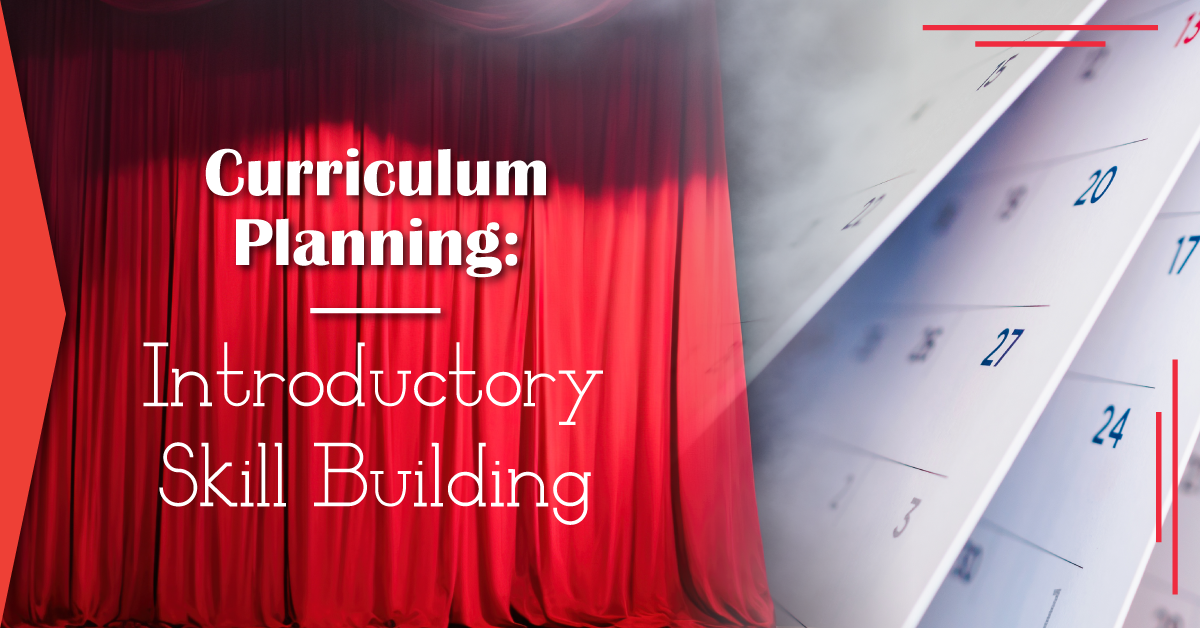With Liberty and Justice For All is a powerful, timely piece that brings student voices to the forefront at a BLM protest - where stories are shared, community is built, and the stakes are real.
Three Reasons You Should Try a New Theatrical Area
Do you consider yourself a theatrical specialist with one definite focus? Or are you more the multi-passionate type? I certainly don’t ascribe to the “jack of all trades, master of none” train of thought. I believe that taking a chance and trying out a new area helps you to become that much more knowledgeable, creative, useful, and appreciative in the theatre world.
Teachers, encouraging your students to try new theatrical areas can really help to grow your drama program. The more students you have available with different experiences and skills, the better. Plus, they can reach out to other students, to help lead and mentor them for future productions. Having volunteer experience in different theatrical areas could help your students if they decide to apply for post-secondary education.
But it’s also important for teachers to try new theatrical areas as well! Teachers must always continue to grow and develop their skills in order to educate and guide their students in the ways of the ever-changing theatrical world.
So, teachers and students alike, I challenge you to try out a new theatrical area this year. If you have students who are normally technicians, encourage them audition to be part of the cast. If you are a director, try set-design. If you are a props maker, try operating the lighting board. If you are a choreographer, try designing the program or the show poster.
Here are three reasons you should try a new theatrical area:
1. Grow your skill set and develop an appreciation for the hard work of others
The more skills you have, the more you can contribute to a theatrical production and the more opportunities can become available to you. You never know where your theatrical journey will take you. And who knows, you might find a new passion!
Trying new theatrical areas also gives you a greater appreciation of how hard other departments work. It takes a variety of talented people to make a show happen, and being able to understand and appreciate the time and talents of others only makes you a better theatrical leader. This also gives you the opportunity to then pass along your knowledge to others and help to develop a new crop of theatre people.
For example, my primary focus in my youth was acting. I even wrote in my eighth grade yearbook that my goal for the future was to become a professional actress. While that didn’t pan out, I still act at the community level, and acting did lead to my love of stage combat, which led me to training to become a fight director. After I graduated from university, I worked at a summer theatre camp, which gave me the opportunity to direct and start teaching. It’s especially wonderful when you see and hear your students going on to do wonderful things in the world of theatre (and beyond) in lots of different areas, and how they’ve applied their learning beyond the classroom. It has all come around full circle, and it’s been a lot of fun!
2. Challenge yourself
You might think you’re not crafty or tech-savvy, or that you don’t have the proper background or all the knowledge you should have. But be open to learning. Just try it and see what happens.
You don’t have to jump immediately to heading a department. Start small. Join a backstage team and work with people who are experienced. Find a teacher or mentor, check out YouTube tutorials, find books on the subject, and read theatre blogs (like this one!).
Last year, my friend offered me the opportunity to be the dance choreographer for her show, which I took on even though I was terrified. I love to dance and I have taken lessons on and off over the years, but I do not have the dance vocabulary or extensive dance background that most choreographers have. I’m so glad I took the chance though – I had a blast! I still have lots of room to grow and I hope I get the opportunity to choreograph another show in the future.
3. Demonstrate life-long learning to your students
It’s okay to be new at things. I think that many teachers struggle with this. We expect ourselves to know everything and to have all the answers. But that puts a lot of stress and pressure on us. Everyone was once a beginner at everything they do, and everyone has to learn somehow.
We ask our students to try new things every class, to be brave, to put themselves out there. Let’s lead by example and demonstrate bravery to our students.
If you are taking on a new area in your current production, share your growth with your students and reflect on your learning. Discuss challenges that you’ve had and listen to your students’ suggestions (e.g. “Here’s what I did. Does anyone have suggestions of how this could have been done differently or better?”). Demonstrating vulnerability and the concept that adults are always learning, making mistakes, and growing from those mistakes is so valuable for students to see. Learning doesn’t end once school is done.
If you do try a new theatrical area this year, drop us a line and let us know how it went.
What were your challenges and triumphs? What did you learn?



